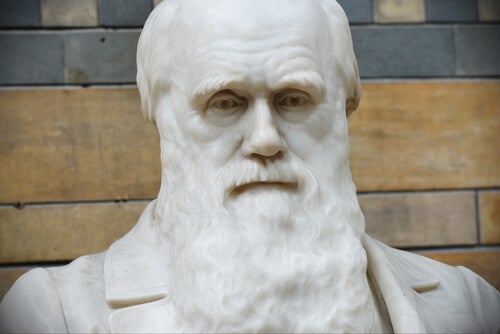Richard Dawkins is one of the most popular thinkers in the world today. He’s characterized by his radical skepticism and activism in opposition to religion. In fact, the Vatican has defined him as one of the most influential atheists on the planet. This isn’t for nothing.
Indeed, this British scientist is an evolutionary biologist, ethologist, and zoologist. He’s also one of the most prestigious scientific communicators of our time. The book which made him famous was The Selfish Gene, published in 1976. This was followed by other hits, The Extended Phenotype and The Blind Watchmaker.
However, the book that had the most impact was The God Delusion, published in 2006. In it, he describes religion as a collective delusion. That’s because it’s built on beliefs that contradict known evidence and support great paradoxes.
“Faith is the great escape, the great excuse to avoid the need to think and evaluate the differences. Faith is believing despite (or perhaps even because of) a lack of evidence.”
-Richard Dawkins-
His views on God
Richard Dawkins maintains a particular position regarding religion and deploys a series of actions to convince everyone of the validity of his point. In fact, he believes that religion is harmful. That’s because he claims it promotes magical thinking which lacks verifiable evidence. Furthermore, in many cases, he believes religion nourishes intolerance and wars.
This scientist claims that the figure of God is like that of a great dictator who conditions all acts. Ironically, he points out that this figure is a “divine dictator, like a Kim Jong-un in heaven.” That said, he claims that he’s not an agnostic, as he sees agnosticism as a declaration of not knowing. He’s an atheist, one who argues that there’s no god.
Dawkins is convinced that religious beliefs are harmful because they hinder rational thought and encourage intolerance. He believes there’s no way of establishing a reasonable debate with religious beliefs since they’re based on dogmas and mysteries that no one is permitted to question or decipher. In effect, they’re closed subjects.
Education and magic
One of the aspects that Dawkins has criticized the most is the education given to children. Firstly, he believes that no minor should be instilled with a religion a priori. They should grow up first, get to know the different trends of thought and religions, and then decide if they want to commit to any of them.
Dawkins is also against children’s education being invaded by fairy tales and magical characters. Indeed, he believes that physical, biological, chemical reality, etc, is far more fascinating and stimulates the imagination as much or more than any kind of fictional character can.
Moreover, as far as magical figures are concerned, Dawkins suggests that children should be encouraged to assume that certain parallel realities exist, for which there are no explanations. For example, he proposes that children should be told about Santa Claus and also encouraged to question his existence. They should try and figure out how long it’d take for him to deliver gifts all around the world. In effect, to ask themselves would it be physically possible for him to do all this in just one night?

Reason is fascinating
Dawkins states that his view of the world changed when he discovered the work of Charles Darwin. It was this naturalist who demolished the creationist theories of the world and replaced them with his prodigious theory of evolution. While his theory wasn’t verified at the time, it’s now widely recognized.
Dawkins has also expressed many objections to the concept of identity. To explain his objections, he gives an example of two twins. They’re biologically identical and may have several traits in common, but their individual experiences make a difference. Thus, for Dawkins, an individual isn’t made up of their identity but their memories. The memories of their experiences.
Richard Dawkins is also a controversial character on social media. He raises unusual ideas by opening parallel debates. In fact, the philosopher questions not only religion but all ‘unfounded’ pseudosciences and beliefs. His idea is that argumentation must prevail in any approach.
The post Richard Dawkins: Religion is a Delusional Mirage appeared first on Exploring your mind.



















Comments